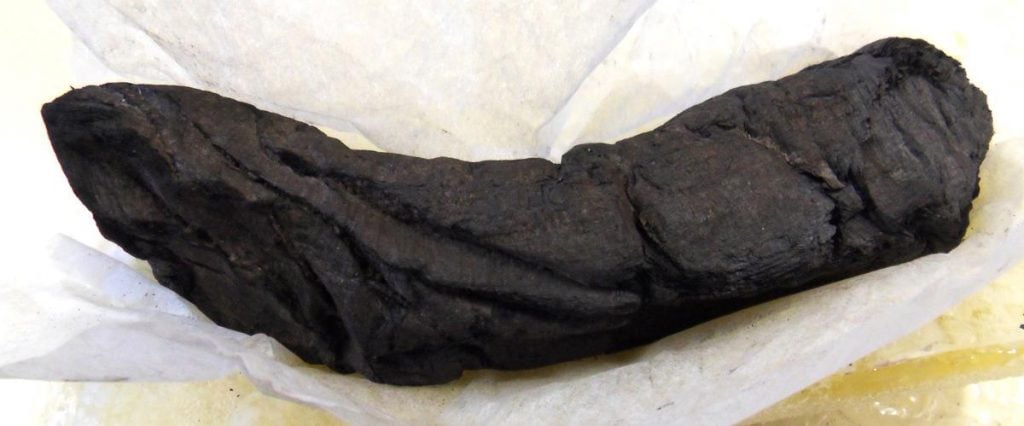Art World
Charred Pompeii Scrolls May Soon Be Decipherable


Henri Neuendorf

Italian scientists say they are optimistic that papyrus manuscripts destroyed by the Vesuvius volcano which wiped out Pompeii and other surrounding cities and towns in 79 AD, will soon be decipherable.
Hundreds of scrolls believed to have been written by Greek philosophers were severely damaged in the Roman town of Herculaneum, which was destroyed by the same volcanic eruption that wiped out Pompeii. However, whereas Pompeii was preserved under a sheet of ash, Herculaneum was completely charred by volcanic gas.
As a result, the manuscripts were transformed into extremely fragile, black scrolls. Several scrolls have already been damaged beyond repair by generations of archaeologists who have unsuccessfully attempted to discover their writings.
But, due to the rate at which technology is developing in the 21st century, the scrolls may be readable within 10 years.“It’s always hard to make a precise predication, but with the resources, the scrolls should be readable within the next decade,” lead researcher Vito Mocella told Agence France Presse.
Mocella and his team at the Naples Institute of Microelectronics and Microsystems (IMM) are experimenting with x-ray phase-contrast tomography, typically used in hospitals for analyzing soft tissue. The scientists have also developed a custom computer program to decipher the signals.
Mocella added that his team is researching another technology called tomo fluorescence, but declared that the project required more funding. So far, he explained, “the work we did was voluntary. It was done virtually in our spare time.”